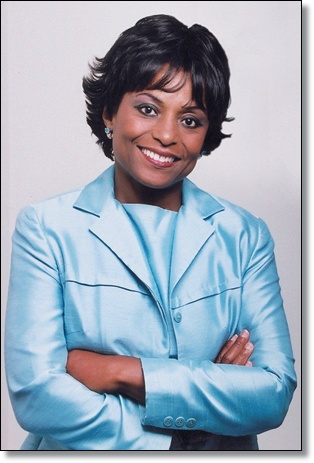Africa Must Blend Strategy With Learning - Sharon Freeman

 |
| Dr. Sharon T. Freeman |
Dr. Sharon Freeman's interview by James Shikwati, (Founder Director of Inter Region Economic Network and The African Executive Magazine) touches on issues that span from Africa's history, Diaspora, youth and the future of Africa.
James:
What inspires you to seek to connect Africans and Africans in Diaspora?Sharon: In the history of the world, the one thing we know for sure that has promoted the growth and development of economies is the effective leveraging of Diaspora connections, resources, and intellectual capital. Look at the case of China and India, for example. There is little doubt that the fast growth of those economies was promoted and accelerated by the contributions that their respective Diasporas made to their development. Africa though lacking Diasporas as powerful and numerous as China and India can similarly stand to gain from a more strategic embrace and leveraging of its substantial global Diaspora.
What are the positive and negative effects of the internet usage on African youth?
A lot of information passes through the Internet; the trick is to capture, absorb and internalize that which is helpful and meaningful in enabling youth to catch up with the knowledge that their global competitors possess. In so doing, youth have to be guided and be strategic in how they use the Internet, absorb and apply the information they gain from it. There are a lot of choices of information to be gleaned but the right one depends on the user’s stage of development and goals. We want to see African youth use the Internet first and foremost to learn then secondarily to use that knowledge for social connections.
African history is dotted with leadership that was easily swayed to have their people exported into slavery over 600 years ago. Currently the continent still faces episodes of grand corruption. In your opinion, why do Africans have little or no regard for fellow Africans? What can be done about this predicament going forward?
We are counting on the youth to learn from global experience to understand what it takes to build lasting and sustainable societies. It’s no longer just personal; it’s a matter of what it takes to compete globally. Traditions and habits that disenfranchise whole sections of societies—such as women, youth, and minorities, cannot win in the global competition because it takes “all hands on deck” to be able to position nations for the global competition. Who is to say where that bright idea will come from? No one knows. The wise thing to do is to ensure that all people are adequately prepared to have a chance to make their maximum and unique contribution to the growth and development of their societies.
How can Africa transition from a consumer to producer society?
There are two ways to grow and develop: One is to become a producer of products and the other is to develop in the service sector. To be a competitive producer of products, a nation requires the infrastructure that enables them to produce and deliver those products in a cost efficient manner—having adequate and efficient power, roads, water, transportation systems and linkages, are the keys. In the service arena, there are opportunities both to create new services and to create new ways of delivering services. McDonald’s is an example of an empire that grew from having innovated a new way of delivering a service. Each country has its own unique resources and assets—which first and foremost include its people—thus, while there is no one magic formula that applies to all of Africa as to which strategy to pursue; the best bet is education to ensure that the people are prepared to create, identify, and seize new opportunities to compete.
What is your advice to African people as they open their doors to new global players such as China?
Be strategic and learn from others. What does China require of its new partners when they open their doors to them? What does the Middle East require to enable access to their finite oil reserves? Lessons abound; the key is to put the people first and with that goal in mind, mine the data for the right lessons from which to learn to move the society forward.
What does your organization “Americans, Chinese & Africans Connecting” (ACAC) aim to achieve?
I have created a new company called Americans, Chinese, and Africans Connecting (ACAC) (http://www.achinaac.com/) which seeks to create business-to-business linkages between private firms. The theory is: If you can’t beat them, join them! The belief is that both sides have something to bring to the table but that they need facilitation to find their way to each other; that’s where ACAC comes in: We want to facilitate bringing those parties together when each side has a unique value proposition, which when combined creates a “win win” for all.
Dr. Sharon T. Freeman is a successful entrepreneur, social change
champion, innovative business development strategist, distinguished critical thinker and a researcher well versed with African affairs having worked in over 40 countries on the continent.
